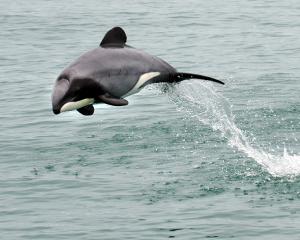
In line with fast-track consent legislation, affected parties were last month invited to provide comment to a panel assessing Contact’s plans for the up to 55-turbine, 5500ha project at Slopedown, east of Wyndham.
Comments were published this week, including an immediate response from Contact requesting the consent process be paused so it could "address some of the matters raised and, where necessary, work through issues with commenters".
In total, 19 groups or individuals provided feedback on the proposal, many concerned about the potential amenity and environmental impacts of the facility in a remote rural location.
Commenters included local government, farmers and other residents, environmental and community groups and Ngāi Tahu.
Contact highlighted Ngāi Tahu concerns it had not had sufficient time to consider and discuss the wide-ranging issues raised.
Fast-track legislation allows five working days to respond to comments, which Contact said was not long enough to properly address all parties’ concerns, resulting in its request to pause proceedings.
"... Ngāi Tahu has expressed its openness to facilitating and participating in further dialogue with [Contact] and Papatipu Rūnanga ki Murihiku to try and address [outstanding concerns]. Contact agrees that time to facilitate such further engagement would be of significant value to the project, tāngata whenua and the wider consenting process."
On being invited to participate last month, the West Catlins Preservation Society expressed surprise and cautious optimism.
The group had believed it would be excluded from consultation under the fast-track process.
In its feedback, society spokeswoman Natalie McRae said Slopedown Hill/Pawakataka was as important to local residents as "the Remarkables are to Queenstown [and] what Roys Peak is to Wanaka".
"Pawakataka is our maunga, a sacred place for us that has for generations been the guide to home from both sea and land.
"We ... believe [Contact’s] main reason for building on Pawakataka is that the site is on a hill with wind access reasonably close to the transmission lines. Contact are relying on their belief that all other effects they have raised are deemed to be avoided, mitigated or remedied.
The society believed "the range of effects ... are significant and have not been suitably identified or addressed".
Fellow commenter Forest & Bird NZ said although it supported the objectives of renewable energy, "the remote location of these developments often mean that they impact on habitats, species and landscapes".
Of particular concern to the group was the potential impact on the most southerly population of the critically threatened pekapeka tou-roa/long-tailed bat.
Some of the turbines presented a "moderate" risk of bat-strike during foraging, the group said.
While highlighting specific conditions it would like to see as part of consenting the facility, Environment Southland said it remained supportive of such projects in general.
"ES remains supportive in principle of the development of further renewable energy resources in the Southland region."
It acknowledged the "potential socio-economic benefits" of the project to the region, but raised concerns effects of construction should be properly mitigated, alongside habitat removal.
"The proposal includes the direct loss of 2.86ha of wetland and additional indirect effects on the larger wetland complexes as well as the forest ecosystems.
"Environment Southland is concerned that the proposed offsetting is not ‘like for like’ and/or that it is inadequate to mitigate the effects of the project."












